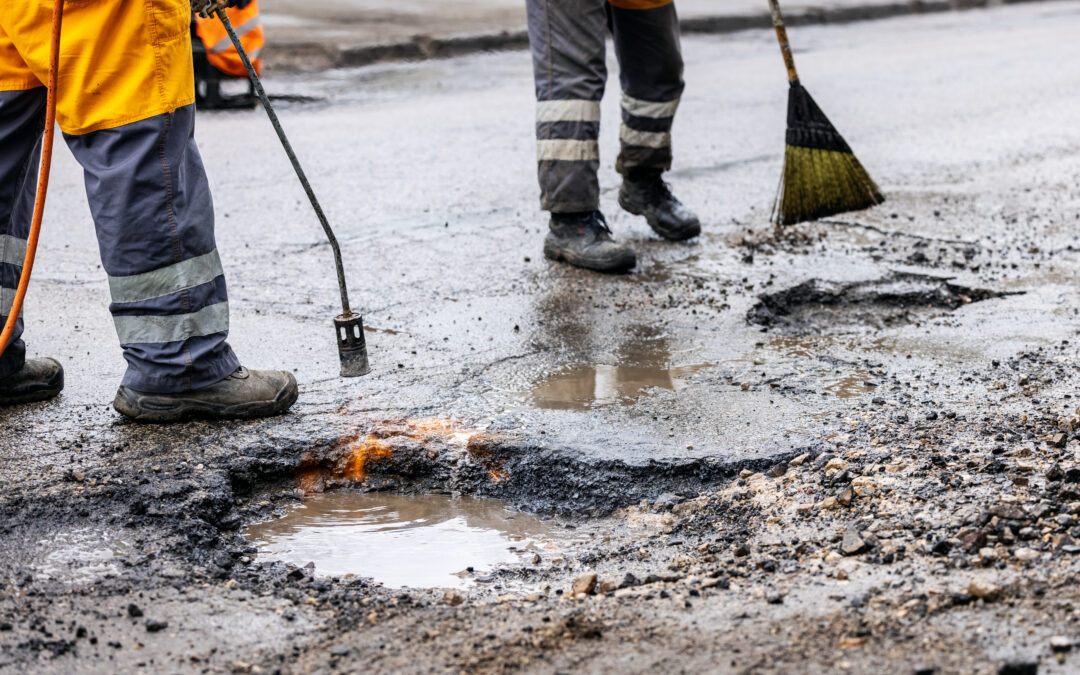The Growing Michigan Together Council (GMTC) released their recommendations today following more than five months of work gathering data, listening to expert presentations, reviewing survey feedback, and collaborating with workgroups. The recommendations, with infrastructure being a core component, provide a starting point for Michigan’s leaders to make significant change in public policy that will improve the state to attract future generations to make Michigan their home.
“These recommendations highlight just how far we need to go to get our core infrastructure, the roads and bridges that millions of Michiganders rely on, back on track for generations to come,” said Rob Coppersmith, Executive Vice President of the Michigan Infrastructure & Transportation Association (MITA), who also served as a member of the Growing Michigan Together Council. “If we are going to succeed in being a thriving, growing state that attracts and retains population, Michigan must make the needed investments to fund and fix our roads and end the decades of disinvestment that have set Michigan backwards.”
The GMTC was charged with developing actionable recommendations that support Michigan’s population growth through investment in needed areas, including Michigan’s infrastructure network. The council is comprised of a broad range of stakeholders with diverse backgrounds who are all invested in Michigan’s future. The GMTC acted in an advisory role to the governor and the director of the Department of Labor and Economic Opportunity to identify concrete, data-driven, and evidence-based goals among several significant issues facing Michigan, including developing a long-term, equitable, and sustainable infrastructure investment plan.
“The council identified major problems facing the state, and the $3.9 billion annual funding deficit facing our roads and bridges is one of the biggest,” said Coppersmith. “The data makes it clear that it’s time we take our infrastructure funding crisis seriously, and the consequences of not doing so will cost us even more each year we fail to act.”
The council recommendations highlight the need to reverse decades of disinvestment in Michigan’s roads. The 21st Century Infrastructure Report found in 2016 found that Michigan faced an annual road finding deficit of $2.1 billion. In 2017, Michigan’s gas tax increased slightly for both gas and diesel. Additionally, Michigan received a one-time funding allocation from the federal Infrastructure Investment and Jobs Act (IIJA), and the 2019 Rebuilding Michigan Program (RBMP) in one-time bond funding for state and federal roads. The 2023 Michigan Infrastructure Report Card gave Michigan’s overall infrastructure network a grade of C- and our roads a D, even after these funding increases. Making matters worse, the 2023 PSC report commissioned by MITA found that none of these increased investments have been enough, and the infrastructure funding gap has grown to $3.9 billion. The funding increases seen in recent years are expected to drop off in 2026, leading to a scenario where gains realized in recent years will be lost if the state does not act to close the $3.9 billion investment gap.
The council recommended an array of solutions to consider closing the investment gap to fix and fund Michigan’s roads, including:
- Future proofing physical infrastructure to ensure that Michigan is investing in communities in a way that ensures that the state’s infrastructure can adapt to an ever-changing climate;
- Examine alternative funding sources that make funding Michigan roads equitable, ensuring that road funding is not threatened by the decreasing revenue from the gas tax as more drivers transition to hybrid and electric vehicles. Alternative funding sources include vehicle miles travel fees, tolling, and better utilization of public-private partnerships;
- Better leverage opportunities for federal investments and state-federal partnerships in community driven solutions that can help prevent flooded highways and streets, like the state has experienced in southeast Michigan in recent years;
- Incentivize state and local entities responsible for infrastructure to coordinate their efforts through service sharing agreements or consolidation of local services to better coordinate infrastructure projects that cross jurisdictional lines.
“We look forward to working with the governor and our partners in the legislature to turn these recommendations into solutions over the coming year,” said Coppersmith. “Michigan’s need is clear, it’s time we enact a long-term, equitable, and sustainable infrastructure investment plan that will finally dedicate the resources to improve our roads and bridges that our friends and families rely on to get to school, work, and their homes. We can’t address the many challenges Michigan faces with housing, education, and transit without quality infrastructure in place. Michigan’s time is running out, we must act now to fund and fix our roads.”

